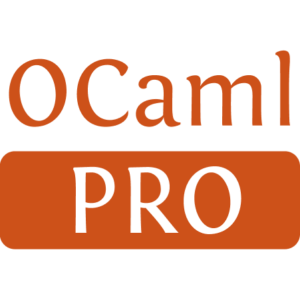molencversion
Molecular encoder/featurizer using rdkit and OCaml
Chemical fingerprints are lossy encodings of molecules. molenc allows to encode molecules using unfolded-counted fingerprints (i.e. a potentially very long but sparse vector of positive integers).
Currently, Faulon fingerprints and atom pairs are supported.
Currently, atom types are the quadruplet (#pi-electrons, element symbol, #HA neighbors, formal charge). In the future, pharmacophore features might be supported (a more abstract/fuzzy atom typing scheme).
Bibliography:
Faulon, J. L., Visco, D. P., & Pophale, R. S. (2003). The signature molecular descriptor.
- Using extended valence sequences in QSAR and QSPR studies. Journal of chemical information and computer sciences, 43(3), 707-720.
Carhart, R. E., Smith, D. H., & Venkataraghavan, R. (1985). Atom pairs as molecular features in structure-activity studies: definition and applications. Journal of Chemical Information and Computer Sciences, 25(2), 64-73.
Kearsley, S. K., Sallamack, S., Fluder, E. M., Andose, J. D., Mosley, R. T., & Sheridan, R. P. (1996). Chemical similarity using physiochemical property descriptors. Journal of Chemical Information and Computer Sciences, 36(1), 118-127.
OpenSMILES specification. Craig A. James et. al. v1.0 2016-05-15. http://opensmiles.org/opensmiles.html
| Author | Francois Berenger |
|---|---|
| License | BSD-3-Clause |
| Published | |
| Homepage | https://github.com/UnixJunkie/molenc |
| Issue Tracker | https://github.com/UnixJunkie/molenc/issues |
| Maintainer | unixjunkie@sdf.org |
| Dependencies | |
| Source [http] | https://github.com/UnixJunkie/molenc/archive/v8.0.2.tar.gz sha256=eebc4041d58d7b0095597764576b88fc2573e151d52dfef51ed6a4938ce39945 md5=62e5c7ffff4227ab46c9e0134037f019 |
| Edit | https://github.com/ocaml/opam-repository/tree/master/packages/molenc/molenc.8.0.2/opam |



